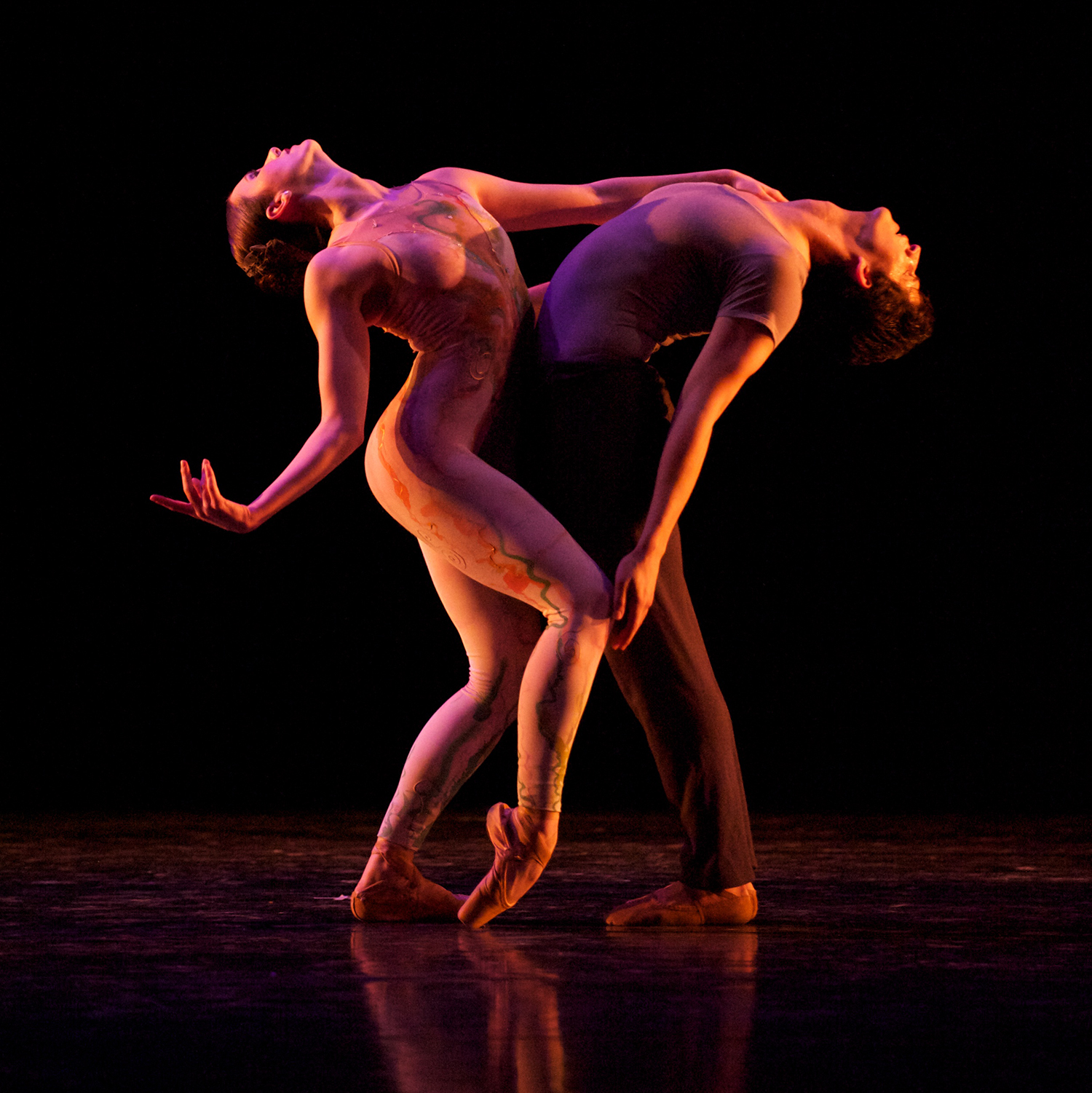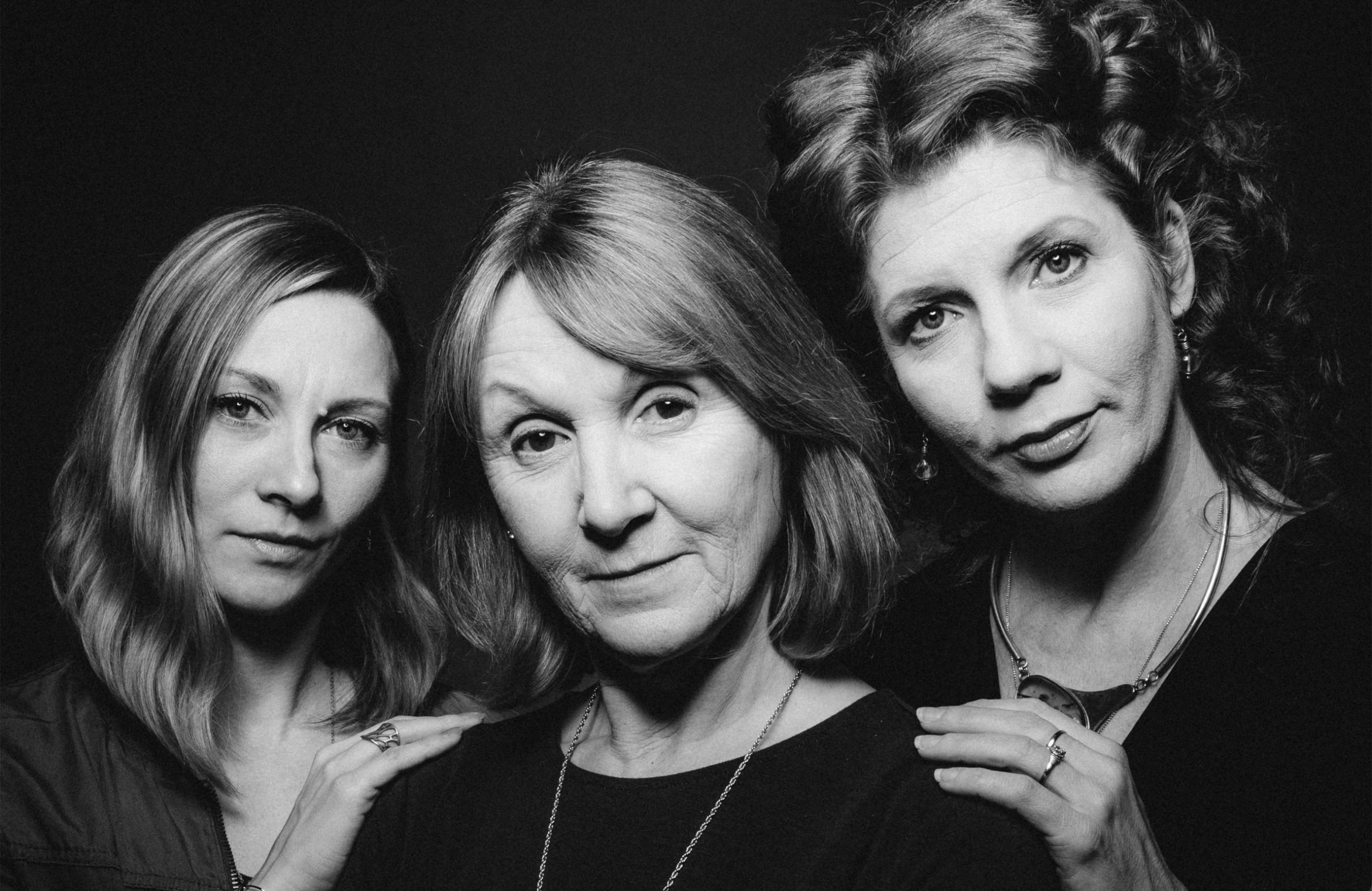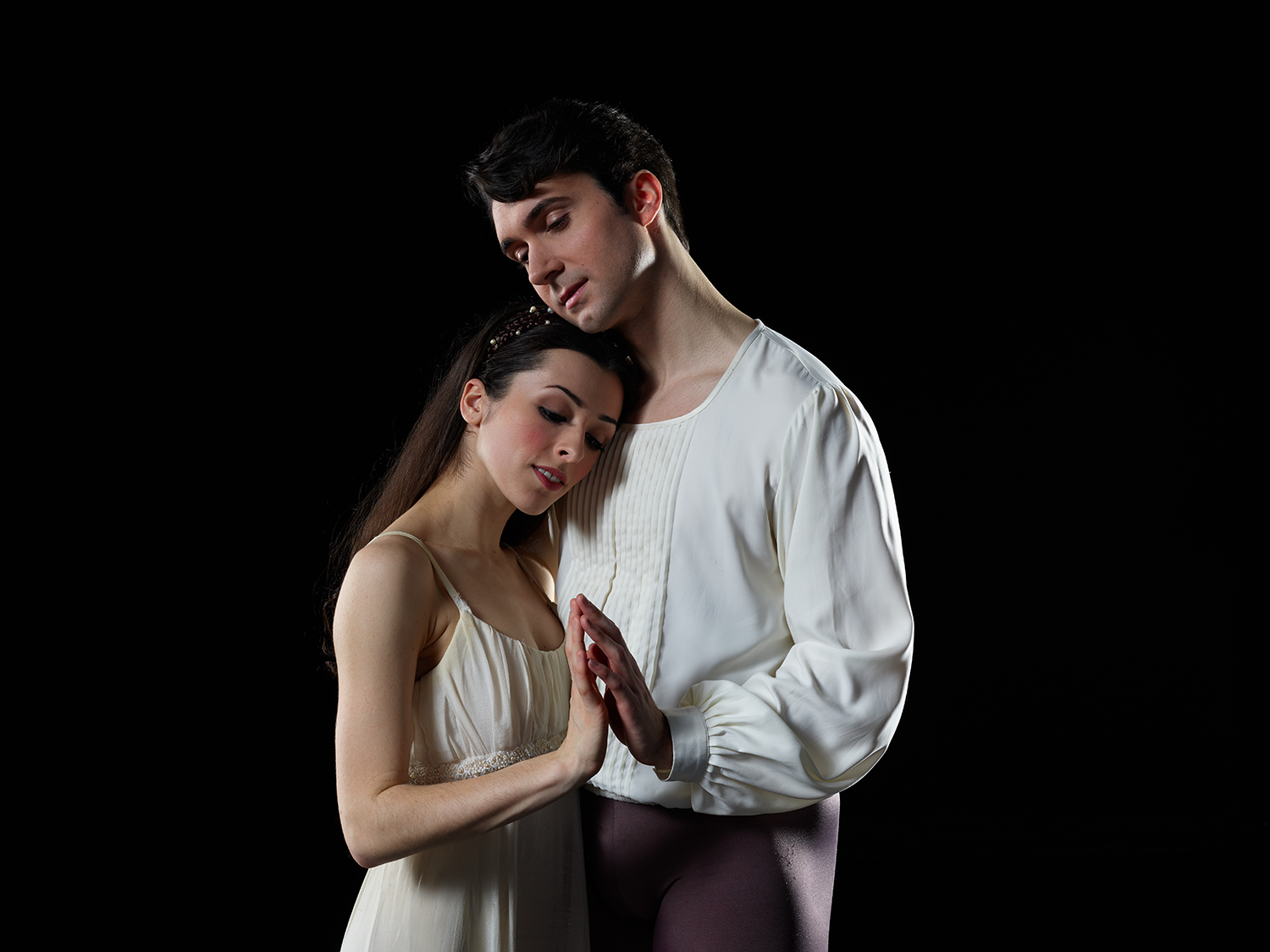Bridging town and gown through dance By Gary Ferrington There has often been a social…
Composer Kenji Bunch On Collaborating With Eugene Ballet on ‘Snow Queen’
Next weekend, Eugene Ballet Company premiers a work years in the making. It’s a new adaptation of Hans Christian Andersen’s “The Snow Queen,” with a modern score by Portland-based composer Kenji Bunch.
A prolific composer, still in his early 40s, his works have been performed by more than 50 American orchestras, including the Oregon Symphony. He has a knack for writing music that just about anyone can connect with, while resisting compromise on his musical idea. He taught viola, composition and chamber music at the Juilliard School Pre-College before moving to Portland. He now teaches viola and composition at Reed College and Portland State University sitting in with the Oregon Symphony on occasion.
Principal dancer Danielle Tolmie suits up as the vivacious, domineering Snow Queen in the Eugene Ballet production. She was not entirely prepared for the effect her character’s appearance has on people.
“So much sparkle,” Tolmie said of her Alexander McQueen-inpired design dreamed up by costumer Jonna Hayden. “I have this huge headdress and rhinestones that cover my ears.”

The company’s intention was to create a ballet with as much appeal for children as adults. Tolmie said it appears to have worked.
“I think it’s attracted a lot of the little dancers in the academy,” Tolmie said. “The first day we ran the scene, [where] I had the cape on and the headdress, and there were these 6-year-olds plastered to the window, like ‘Oh my god! It’s Elsa!’”
Disney’s “Frozen” is actually an adaptation of an 1844 Hans Christian Andersen fairy tale, “The Snow Queen” — a sweeping story of love, death and faith. The Eugene Ballet also uses Andersen’s story as its starting point, for a much more faithful adaptation.
Two young lovers, Gerda and Kay, find their happiness shattered by a majestic winter spirit who steals Kay away. Gerda’s quest to find him is full of talking crows, gypsies and witches.
Composer Kenji Bunch says that episodic chase turned out to be key to adapting the story.
“A large part of it is like a road movie, right?” Bunch said. “It’s a journey. So you want to give each stop a very specific character, but there has to be some connecting thread of the heroine of the story going through this journey.”
Toni Pimble is the artistic director of Eugene Ballet. She said, “That was a tremendous challenge, I think, for Kenji, to tie these disparate scenes to create one score.”

Pimble sent Bunch a kind of storyboard for “The Snow Queen” — nearly two dozen scenes. He responded with electronic music clips. After revisions, Bunch sent the score to University of Oregon music professor Brian McWhorter, whose ensemble, Orchestra NEXT, recorded this music in a few furious days. Pimble then used the recording to choreograph “The Snow Queen.” The orchestra will play the score live for performances.
Bunch has worked with choreographers before, but this is his first full-scale ballet.
“There were times when I’d play what I had for her, and she’d say, ‘That’s great, but I’m going to need probably twice that length, because of the time it’s going to take people to get off the stage,’” Bunch said. Beyond the balletic logistics, “sometimes you have to clear the air emotionally. You can’t just snap your fingers and be somewhere else.”
Stylistically, Bunch envisioned “The Snow Queen” score as an homage to old school ballet composers like Tchaikovsky and Ravel, within the context of his own style.

“One thing that’s different about that this score from a lot of my work is a lot of times I’ll draw influence from popular American music,” Bunch said. “And this had none of that. It just didn’t make any sense for this to have that element.”
Alternating from powerful, almost cinematic themes to very delicate “pas de deuxs,” French for “steps of two,” the score sets up some beautiful dance moments.
Near the end of the ballet, Gerda, having fought her way into the Snow Queen’s palace finds Kay frozen.
“And her first thought is she’s lost him,” Toni Pimble explains. “She’s come all this way, and he’s not alive anymore. But because she’s come so far, she can’t quite give up. She goes back and she starts touching him. She hears the heartbeat. And there’s that beautiful, beautiful piano that Kenji’s written. It’s like the blood coursing back into his veins.”
In a visually striking reversal of female-male duets, Gerda gently rocks and pulls Kay, leading and turning him in ways audiences might expect the male dancer to lead the female.
“She’s bringing him slowly back,” Pimble said.
Eugene Ballet’s The Snow Queen, featuring Kenji Bunch’s original score is onstage at the Hult Center in Eugene April 8 and 9.
Article Originally Posted on OPB




